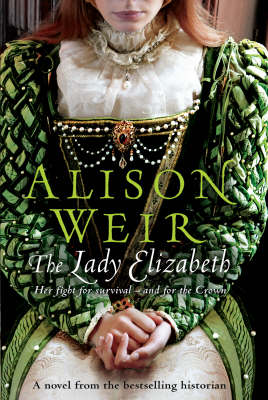Reviewed by gmcgregor on
The relationship Weir depicts between Mary and Elizabeth is...complicated. Mary was stripped of her royal title and proclaimed a bastard when Henry divorced Katherine of Aragon to wed Elizabeth's mother, Anne Boleyn. Although this devastated both Katherine and Mary, Weir depicts the latter as having made a real effort to be kind and loving to her little half-sister, despite having been made a part of Elizabeth's service when she was born. Elizabeth, too, was made a bastard when her mother was executed, and the book depicts Mary as haunted by the allegations made during Anne's trial that Elizabeth was actually the offspring of one of Anne's alleged lovers. Once their brother Edward dies, there is too much between them, from that history to their differences in religious faith, for them to be close any longer, and it is only Elizabeth's canny walking of a very thin line that keeps her from being disinherited.
I wish the book had focused more on this, and less on the salaciousness of the relationship between Elizabeth and her stepmother's new husband: Thomas Seymour. While it's certainly a significant factor in the period between her father's death and her own inheritance of the throne, and deserved to be explored, it got a little too bodice-ripping for my taste. There's historical record of some of the improprieties that occurred while Elizabeth lived with Katherine and Thomas, but Weir really makes it the centerpiece of the narrative and escalates it as high as she possibly can. We get endless scenes of Elizabeth's growing desire, of Kat's encouragement of the sparks between them, and it's like Weir is going for a kind of Philippa Gregory-esque fun prurience (I'm not trying to mock, I like Gregory's books) but forgot the fun part of it.
All in all, this was a second disappointment for me with Alison Weir and her fiction output. I read Innocent Traitor, about Lady Jane Grey, several months before I read this and while this one was better, they both fell flat for me. Her nonfiction histories do an admirable job of being informative but feeling light rather than heavy, making the people on the page come alive, but her fiction prose drags. There's just no spark there, and her characters feel boiled down to as few personality traits as possible. I would not recommend this book.
Reading updates
- Started reading
- 4 December, 2017: Finished reading
- 4 December, 2017: Reviewed
